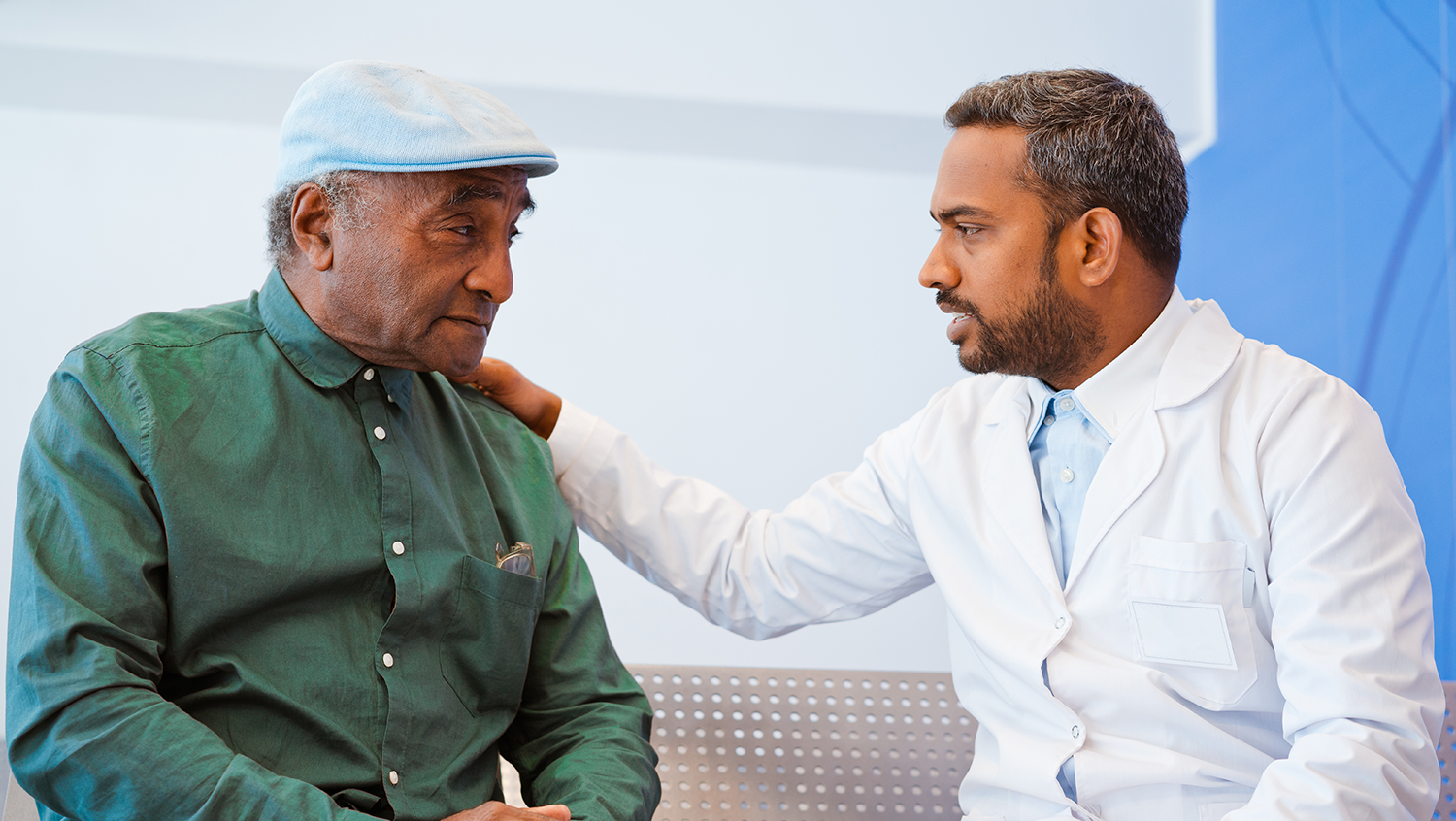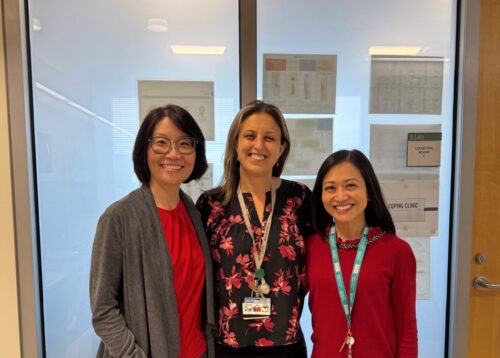What is Spiritual Distress? Once Identified, Chaplaincy Could Be a Bridge to Mental Health Treatment
May 19, 2022

izusek, Getty Images
Integrating spiritual care into primary care addresses spiritual distress in immigrant and refugee patients, study finds.
Since the beginning of the COVID-19 pandemic, it has become increasingly clear that spiritual care in clinical settings improves patients’ overall wellbeing. Chaplains have been working hard to meet the demand while making sure to identify and serve those who need them most. On a typical day, BMC’s multi-faith team follows up on priority referrals, responds to urgent pages, and does rounds in the most acute units — primarily in the inpatient setting. “We simply don’t have enough chaplains to do a lot of outpatient work right now,” says Rev. Jennie Gould, a chaplain and the director of Clinical Pastoral Education, a training education program for chaplains at Boston Medical Center.
But last summer, an opportunity surfaced. Gould was looking for a meaningful way for her 2021 summer interns to learn and contribute. At the same time, BMC’s Immigrant and Refugee Health Center (IRHC) team, led by Sarah Kimball, MD, was thinking more broadly about wellness as inclusive of physical, mental, and spiritual health. When Gould shared with Kimball that her interns were immigrants from Uganda and Vietnam, “the stars aligned,” recalls Gould. “It seemed like the perfect opportunity to involve two chaplains-in-training who had that immigration process behind them and could really help people who were in the throes of having to navigate a new system.”
Together, Gould and Kimball piloted a seven-week program integrating spiritual care into IRHC’s primary care clinic. “Sarah is the kind of physician that understands holistic care and wants to find unique ways to put that into action,” says Gould. “This pilot is a fine example of that desire for whole person care.” Their exploratory study, published in an April issue of Journal of Religion and Health, found that outpatient chaplaincy services are a feasible intervention to address spiritual distress in immigrant and refugee patients.
What is spiritual distress?
Gould explains that spiritual distress is when “a person’s way of making meaning in the world begins to shatter and break down.” This “lack of coherence” can happen for a variety of reasons, including illness or death, political unrest, the loss of income or housing, or the onset of trauma of any kind. She and other chaplains in the Spiritual Care Department at BMC are trained to look for the symptoms of spiritual distress in patients of any faith or no faith:
- Breaking away from or loss of one’s beliefs or faith community
- Feelings of shame, abandonment, grief, or hopelessness
- Spiritual bypassing, which is when someone uses their spirituality to suppress feelings
During the seven-week pilot, 48 IRHC patients were seen in clinic, of which 28 were screened for spiritual distress. The fact that many patients wanted to speak with a chaplain doesn’t surprise Kimball. “Many of our patients are coming in with a raw experience of having had to leave their home country for reasons of persecution or violence. So, almost by definition, the people who end up in our clinic — refugees, asylum seekers, and many immigrants — have experienced deep personal or spiritual distress,” she says. Of the 28 patients screened for spiritual distress, nine opted to talk to a chaplaincy intern to help manage their grief, feelings of abandonment, guilt, betrayal, fear of death, shame, and distrust.
Spiritual care starts with listening without judgment
Gould’s approach to providing spiritual care starts with listening without judgment. “I teach my students that our patients at the IRHC and throughout BMC may have immense suffering that we want to be able to take away, but we can’t. What we can do is be a witness to their life story. This type of listening without judgment is quite different from perhaps somebody who is clergy, or an imam or a rabbi who may be also concerned with doctrine of that particular religion.”
In fact, Clinical Pastoral Education is designed as a multi-faith program where students learn about many different religious doctrines and traditions so they can counsel across faiths. Gould herself takes students to the local monastery, mosque, and temple to experience different worship settings and religions. When it comes time to visit with a patient, chaplains know their role is not to import anything, but rather to listen for areas of resilience and strength, draw those out and lift them up. In some cases, that could mean saying the rosary or praying together, and in other cases it could involve song or silent meditation.
‘A beautiful inter professional collaboration’
The results of the pilot have made a lasting impact on Kimball. “What was so beautiful about this interprofessional collaboration was that Jennie and her team brought a wealth of experience in sitting with people who are in moments of distress,” reflects Kimball.
“Medicine focuses on problems and solutions, so our job as clinicians is typically to diagnose and fix the problem. But there aren’t a lot of great options for treating our patients’ core existential pain related to their migration journeys. We can make mental health diagnoses and give referrals to community organizations, but now we know how to just hold some of that pain. This experience has absolutely changed my practice.”
Chaplains as bridge to mental health treatment?
IRHC patients benefitted from the spiritual care pilot by feeling calmer, clearer, and more connected to what gives them strength. But Kimball and Gould think there may be more. They suspect chaplaincy could be a bridge to mental health treatment for refugees, asylum seekers, immigrants, and any individuals who face cultural barriers to that type of critical care. “There would be the spiritual care, and then a warm handoff to a mental health counselor,” says Kimball.
As Kimball and Gould work through this idea and explore funding to expand the pilot program, their conversations are always balanced and free-flowing. They find their practice models so well-aligned that some type of longer-term collaboration seems like a natural fit. “Jennie’s framework and teaching in the chaplaincy program is so well-mapped to what we talk about with trauma-informed care and best treatment,” says Kimball. “There’s a beautiful overlap between our two worlds.”


